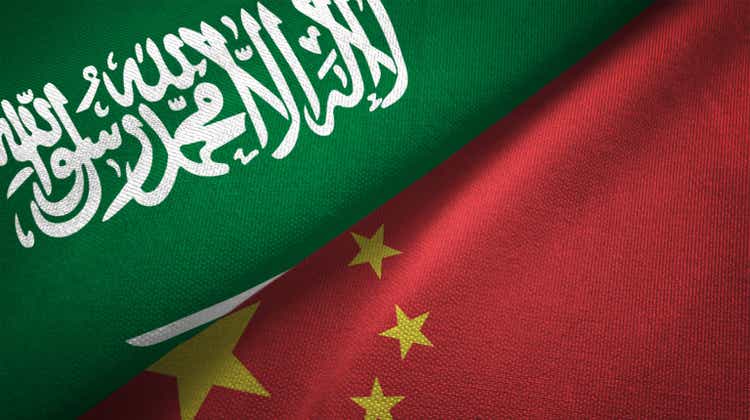Oleksii Liskonih/iStock via Getty Images
It was reported Tuesday that Saudi Arabia is considering accepting yuan in place of USD for Chinese oil sales. The news comes one day after it was reported that Foxconn is in talks to build a $9b factory in Saudi Arabia. And just as Aramco (ARMCO) puts the finishing touches on a deal to construct a $10b refinery and chemicals complex in North East China.
Saudi’s pivot towards China is in part a natural evolution, as China is the largest buyer of Saudi crude, and growing. However, Wall Street Journal sources indicate that talks with China over yuan-priced oil have accelerated in the past year. With sources pointing to the Kingdom’s frustration over Washington’s attempts to strike a deal with Iran, and following the precipitous US withdrawal from Afghanistan.
Saudi’s pivot is unlikely to have a major impact on oil markets. As long as oil hits the water, global prices will adjust accordingly (NYSEARCA:USO) (NYSEARCA:XLE). However, the largest oil refinery in the US, Motiva, is owned by Aramco (ARMCO). The Kingdom has historically been a top 20 holder of US Treasuries, but a net seller in recent years. In 2017, Foxconn committed to a $10b investment in Wisconsin, since mostly abandoned. And in summer 2021 the Kingdom signed a military cooperation agreement with Russia.
The US and Saudi have a long-standing security relationship, and Saudi remains the largest buyer of US military equipment. Lockheed (NYSE:LMT) recently announced plans to spend $1b to localize military manufacturing in Saudi. Suggesting that Saudi’s pivot could eventually impact weapons sellers like Raytheon (NYSE:RTX) and Lockheed (LMT), more than oil companies (XLE).
